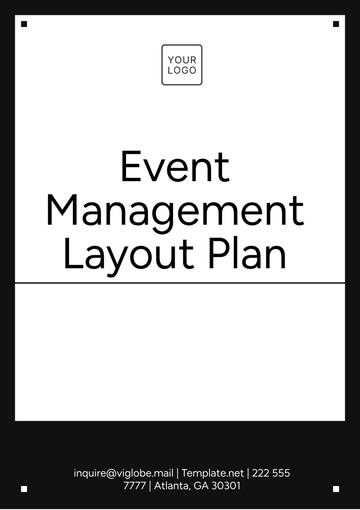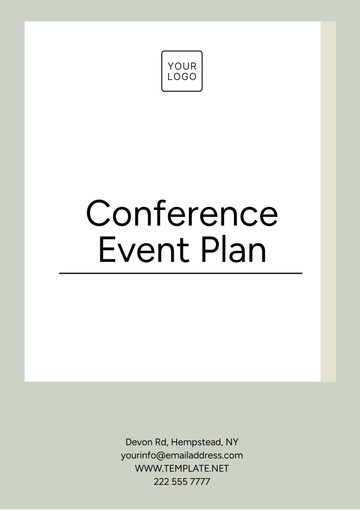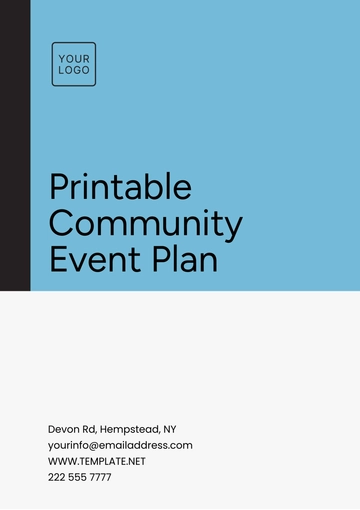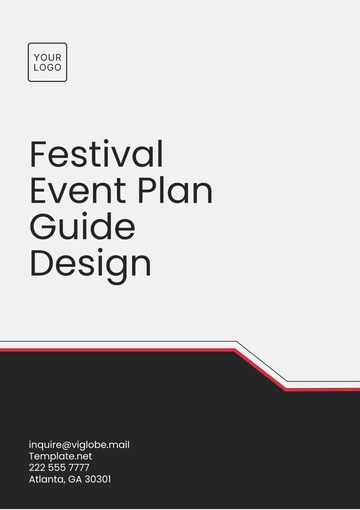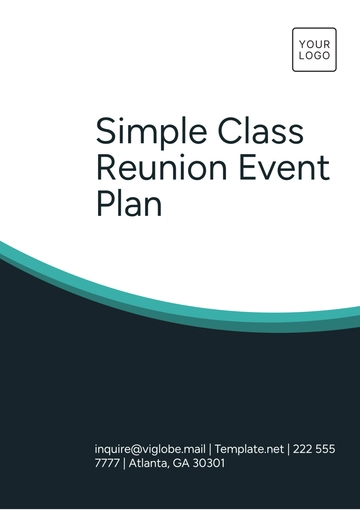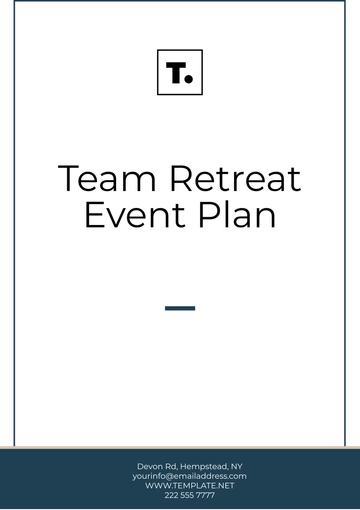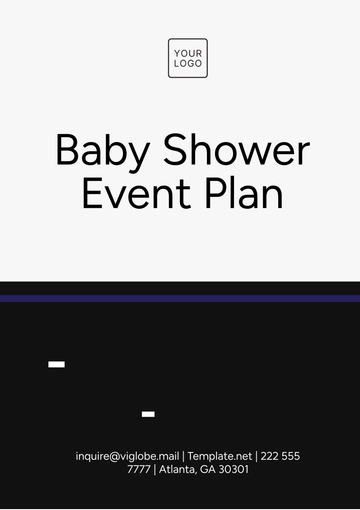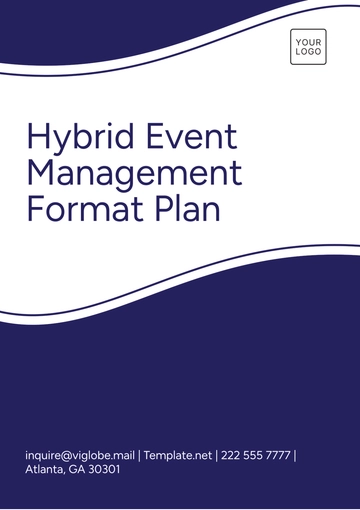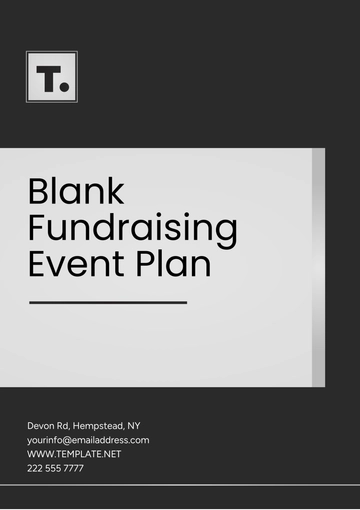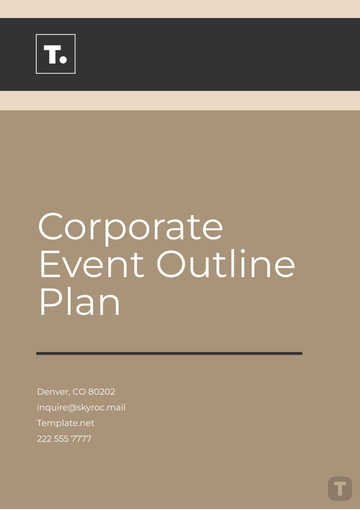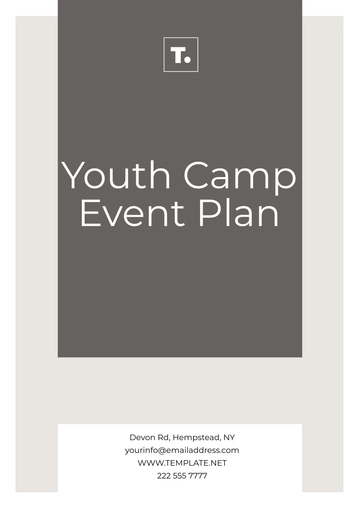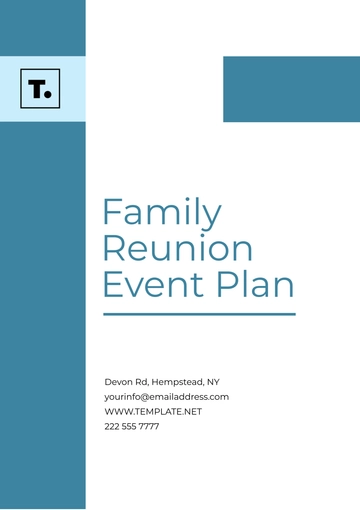Free Team Retreat Event Plan
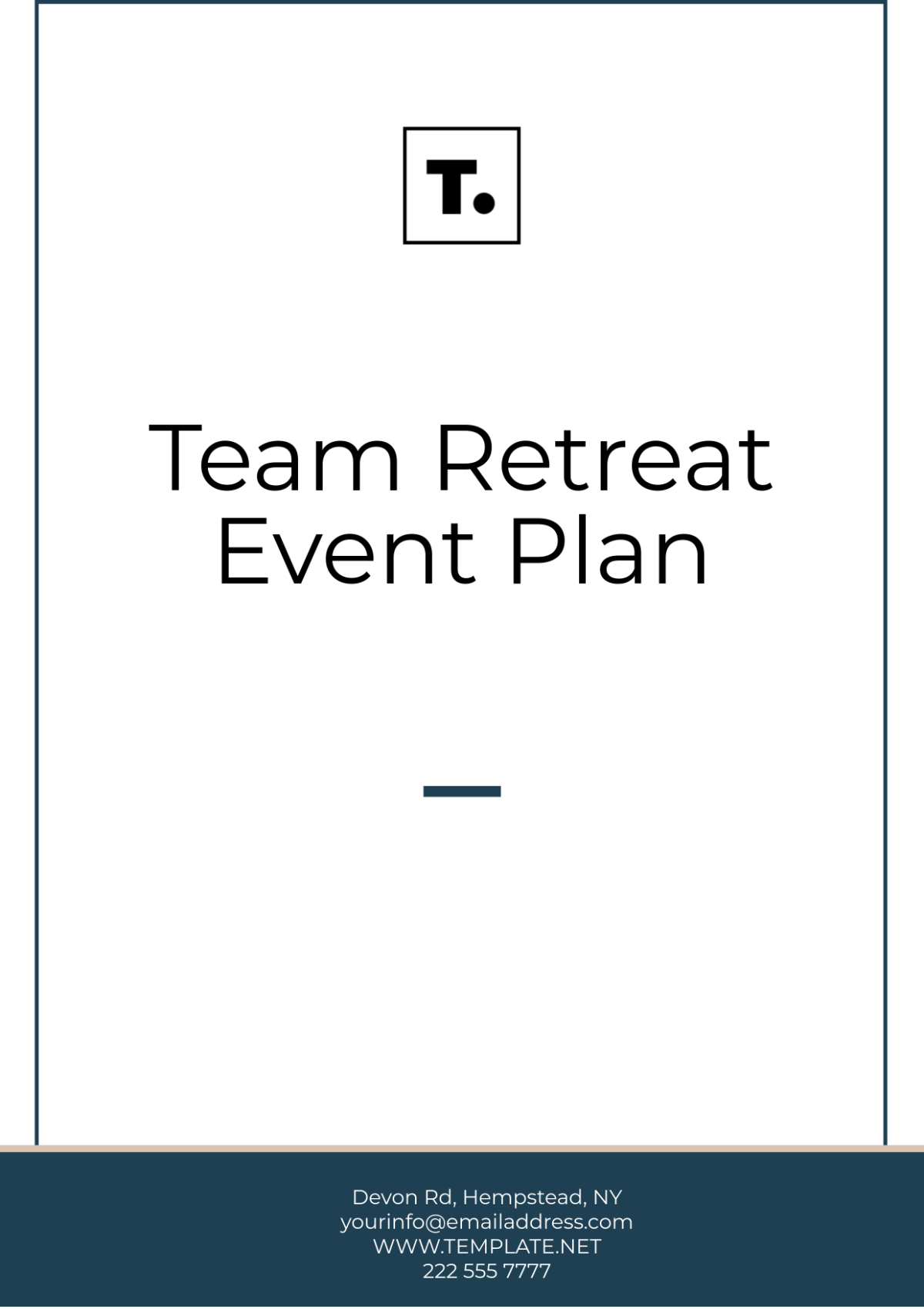
I. Introduction
A well-organized team retreat can significantly improve team cohesion, communication, and overall productivity. This plan outlines the key components required for a successful team retreat event, aimed at fostering collaboration and addressing team-related challenges in a constructive environment.
II. Objectives
The main objectives of the retreat are to:
Enhance team collaboration and communication
Provide opportunities for team building and trust development
Identify and solve team-related challenges
Boost team morale, motivation, and engagement
Align the team with strategic goals and initiatives
Encourage creativity and innovative thinking
III. Venue Selection
1. Criteria
When selecting a venue, consider the following factors:
Accessibility: Easily accessible for all team members, including those traveling from different locations
Facilities: Availability of adequate meeting rooms, activity spaces, and equipment
Accommodation & Catering: On-site or nearby accommodation and dining services for multi-day events
Ambience: Relaxing and conducive to both work and leisure activities
Technology: High-speed internet, projectors, and other essential meeting tools
2. Recommendations
Riverside Retreat Center, Riverside, CA: A scenic location with modern amenities, ideal for team bonding and brainstorming sessions
Lakeview Lodge, Dallas, TX: Surrounded by nature, offering plenty of outdoor activities and tranquil meeting spaces
Mountain Getaway Resort, Denver, CO: A perfect mix of outdoor adventures and state-of-the-art meeting rooms
IV. Agenda
1. Day 1
Time | Activity |
|---|---|
9:00 AM | Arrival and Welcome |
10:00 AM | Team Building Exercises |
12:00 PM | Lunch Break |
1:00 PM | Problem-Solving Workshop |
4:00 PM | Leisure Activities (Sports, Relaxation) |
2. Day 2
Time | Activity |
|---|---|
9:00 AM | Feedback Session |
10:30 AM | Strategic Planning Workshop |
12:00 PM | Lunch Break |
1:00 PM | Outdoor Adventure (Hiking, Boating) |
3:30 PM | Closing Reflections & Next Steps |
3. Optional Evening Activities
Time | Activity |
|---|---|
7:00 PM | Team Dinner & Social Gathering |
9:00 PM | Informal Networking & Relaxation |
V. Workshops & Activities
1. Team Building Exercises
Icebreakers to encourage communication
Trust-building activities to foster stronger relationships
Group challenges to improve teamwork under pressure
2. Problem-Solving Workshop
Identify key team challenges through interactive brainstorming
Collaborate on solutions through structured group activities
Discuss actionable steps to implement changes post-retreat
3. Strategic Planning
Align the team with organizational goals
Discuss key projects, upcoming milestones, and resource allocation
Set measurable outcomes and accountability for post-retreat
4. Outdoor Adventures
Nature-based activities such as hiking, canoeing, or group sports
Focus on improving teamwork, leadership, and adaptability in dynamic environments
VI. Budget
A preliminary estimated budget for the retreat:
Item | Estimated Cost ($) |
|---|---|
Venue Rental | 2,000 |
Catering | 1,500 |
Accommodation | 3,000 |
Activities | 1,000 |
Facilitator Fees | 500 |
Miscellaneous | 500 |
Total | 8,500 |
Note: The budget is subject to change based on venue selection, participant count, and activity choices.
VII. Logistics & Travel
1. Transportation
Arrange group transportation or reimburse travel costs
Ensure the venue has sufficient parking or access to public transport
Offer carpooling options to reduce costs and encourage collaboration
2. Accommodation
Book comfortable accommodation close to the venue (if not on-site)
Ensure rooms are shared or private based on team preferences
3. Catering
Offer diverse meal options to accommodate dietary preferences
Schedule coffee breaks and snacks during workshops to maintain energy levels
VIII. Health & Safety
Ensure compliance with all health and safety regulations at the venue
Have first-aid kits and medical assistance available for outdoor activities
Address any special needs or accommodations for team members
IX. Success Metrics
To assess the effectiveness of the retreat, track the following metrics:
Post-Retreat Feedback: Survey to measure satisfaction and gather insights
Collaboration Improvement: Monitor the quality and frequency of team communication post-retreat
Engagement Levels: Evaluate employee engagement and motivation before and after the retreat
Goal Alignment: Track progress on strategic initiatives and team performance over the following quarter
X. Conclusion
This retreat is designed to foster a more collaborative, cohesive, and high-performing team by focusing on strategic alignment, problem-solving, and team-building exercises. With the right balance of work and leisure, the retreat aims to strengthen relationships and improve communication, setting the foundation for long-term success and achieving business objectives.
- 100% Customizable, free editor
- Access 1 Million+ Templates, photo’s & graphics
- Download or share as a template
- Click and replace photos, graphics, text, backgrounds
- Resize, crop, AI write & more
- Access advanced editor
Plan the perfect team retreat with Template.net's Team Retreat Event Plan Template. This fully customizable and editable template streamlines your event planning process. Editable in our AI Editor Tool, you can easily tailor the schedule, activities, and logistics to fit your team's unique needs, ensuring a seamless and enjoyable experience for everyone.
You may also like
- Finance Plan
- Construction Plan
- Sales Plan
- Development Plan
- Career Plan
- Budget Plan
- HR Plan
- Education Plan
- Transition Plan
- Work Plan
- Training Plan
- Communication Plan
- Operation Plan
- Health And Safety Plan
- Strategy Plan
- Professional Development Plan
- Advertising Plan
- Risk Management Plan
- Restaurant Plan
- School Plan
- Nursing Home Patient Care Plan
- Nursing Care Plan
- Plan Event
- Startup Plan
- Social Media Plan
- Staffing Plan
- Annual Plan
- Content Plan
- Payment Plan
- Implementation Plan
- Hotel Plan
- Workout Plan
- Accounting Plan
- Campaign Plan
- Essay Plan
- 30 60 90 Day Plan
- Research Plan
- Recruitment Plan
- 90 Day Plan
- Quarterly Plan
- Emergency Plan
- 5 Year Plan
- Gym Plan
- Personal Plan
- IT and Software Plan
- Treatment Plan
- Real Estate Plan
- Law Firm Plan
- Healthcare Plan
- Improvement Plan
- Media Plan
- 5 Year Business Plan
- Learning Plan
- Marketing Campaign Plan
- Travel Agency Plan
- Cleaning Services Plan
- Interior Design Plan
- Performance Plan
- PR Plan
- Birth Plan
- Life Plan
- SEO Plan
- Disaster Recovery Plan
- Continuity Plan
- Launch Plan
- Legal Plan
- Behavior Plan
- Performance Improvement Plan
- Salon Plan
- Security Plan
- Security Management Plan
- Employee Development Plan
- Quality Plan
- Service Improvement Plan
- Growth Plan
- Incident Response Plan
- Basketball Plan
- Emergency Action Plan
- Product Launch Plan
- Spa Plan
- Employee Training Plan
- Data Analysis Plan
- Employee Action Plan
- Territory Plan
- Audit Plan
- Classroom Plan
- Activity Plan
- Parenting Plan
- Care Plan
- Project Execution Plan
- Exercise Plan
- Internship Plan
- Software Development Plan
- Continuous Improvement Plan
- Leave Plan
- 90 Day Sales Plan
- Advertising Agency Plan
- Employee Transition Plan
- Smart Action Plan
- Workplace Safety Plan
- Behavior Change Plan
- Contingency Plan
- Continuity of Operations Plan
- Health Plan
- Quality Control Plan
- Self Plan
- Sports Development Plan
- Change Management Plan
- Ecommerce Plan
- Personal Financial Plan
- Process Improvement Plan
- 30-60-90 Day Sales Plan
- Crisis Management Plan
- Engagement Plan
- Execution Plan
- Pandemic Plan
- Quality Assurance Plan
- Service Continuity Plan
- Agile Project Plan
- Fundraising Plan
- Job Transition Plan
- Asset Maintenance Plan
- Maintenance Plan
- Software Test Plan
- Staff Training and Development Plan
- 3 Year Plan
- Brand Activation Plan
- Release Plan
- Resource Plan
- Risk Mitigation Plan
- Teacher Plan
- 30 60 90 Day Plan for New Manager
- Food Safety Plan
- Food Truck Plan
- Hiring Plan
- Quality Management Plan
- Wellness Plan
- Behavior Intervention Plan
- Bonus Plan
- Investment Plan
- Maternity Leave Plan
- Pandemic Response Plan
- Succession Planning
- Coaching Plan
- Configuration Management Plan
- Remote Work Plan
- Self Care Plan
- Teaching Plan
- 100-Day Plan
- HACCP Plan
- Student Plan
- Sustainability Plan
- 30 60 90 Day Plan for Interview
- Access Plan
- Site Specific Safety Plan




